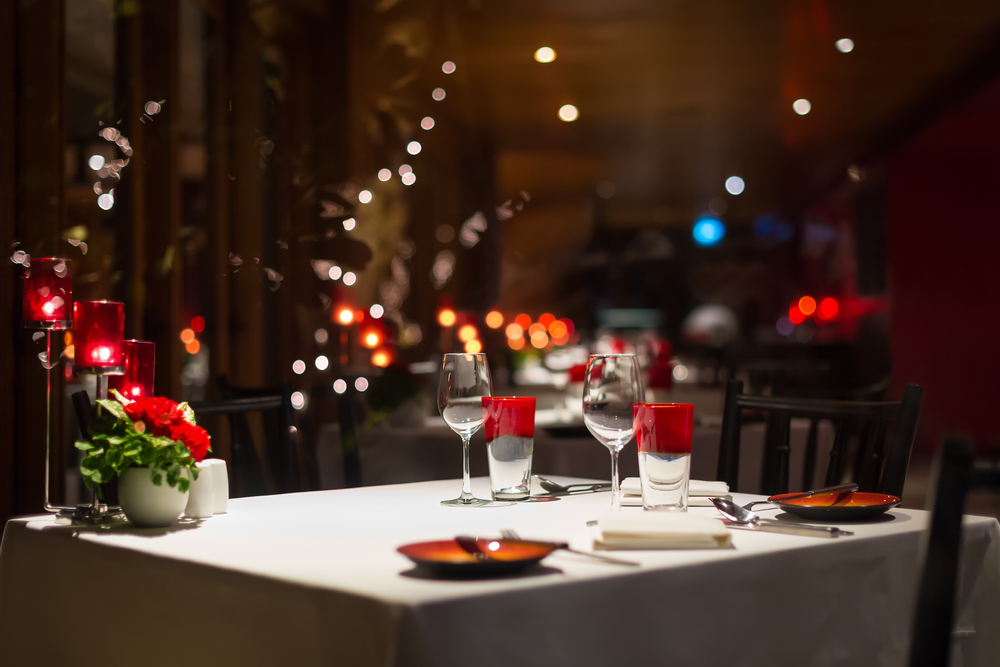Is the most romantic day of the year a keeper? Or is it time for the hospitality industry to end a tired relationship and move on to a new format? Is Valentine’s Day A Boost for Hospitality? Or more trouble than it’s worth?
Firstly, I’ve never really been one for romantic trysts, well, not in such a commercialised sense. Valentine’s Day, a restaurant packed for of couples gazing into one another’s eyes; or worse, struggling for conversation and visibly buckling under the pressure of forced fun, for me, holds all of the romance of a soggy lettuce leaf. Yet for the hospitality industry it has always been a pivotal calendar moment.
Some research suggests that over £1.3billion was spent on Valentine’s Day in 2022, a figure that has consecutively increased year on year. And it is younger generations who are credited with putting their money where their mouth is, when it comes to spending on the one they love.

Yet there is evidence to the contrary that, although we are keen to spend, a level of scepticism exists among UK consumers.
In this blog I’ll examine if as a nation we are still in love with Valentine’s Day? Asking is Valentine’s Day a boost for hospitality or an expensive non-starter. And if it is time to reimagine the romance, with new ideas to drive returns.
CASHING IN ON VALENTINE’S DAY
Valentine’s Day can be a significant revenue driver for hospitality venues, encompassing restaurants, hotels, and event venues. The occasion can prompt heightened consumer spending as couples seek memorable experiences to express love.
Certainly, if Valentine’s falls on a slower day of the week as it does this year, there may be commercial gains for restaurants and hotels. Tempting couples out for a midweek night meal or getaway can result in packed venues, maximising profits on traditionally quiet evenings.
A restaurant filled with intimately spaced tables for two can create a romantic atmosphere that aligns with traditional Valentine’s Day expectations.
And crafting special Valentine’s Day menus, dressing the space to cultivate an intimate ambiance, or offering extras with a perceived high value (free champagne, handmade chocolates etc.), can tempt in the crowds.
 Yet, when it coincides with busier nights, Fridays and weekends in particular, is packing a restaurant full of tables of two the right course? Especially for venues not suited to being full with couple diners, such as those that have a seating plan that can’t be reconfigured easily. Booths and larger tables become loss-makers in this instance.
Yet, when it coincides with busier nights, Fridays and weekends in particular, is packing a restaurant full of tables of two the right course? Especially for venues not suited to being full with couple diners, such as those that have a seating plan that can’t be reconfigured easily. Booths and larger tables become loss-makers in this instance.
And even if you can reconfigure, tables of two people limit overall capacity. A problem for busy restaurants that can ultimately make Valentine’s a loss making exercise – unless you can charge more per head of course. But is it possible to raise prices in the current climate?
Could shaking up the format leverage more of a competitive edge?
IS THE UK VALENTINE’S FATIGUED?
When asking ‘is Valentine’s Day a boost for hospitality’, we need to look at the wider question of whether we have fallen out of love with Valentine’s or not. What is clear is that the UK audience does approach this holiday with a healthy pinch of cynicism.
A recent You Gov survey into attitudes towards Valentine’s Day found the UK among the countries with the largest percentage of people put off by commercial pressures. Second only to Spain, the vast majority, some 82% of Brits, believe this holiday is only celebrated because of pressure from commercial entities.
Read more here: https://yougov.co.uk/international/articles/44220-valentines-day-proper-special-occasion-or-it-too-c
The cost-of-living crisis and pandemic will also have taken their toll on venues’ ability to profit from romance.
A restaurant experience in the home is much more achievable and desirable in 2023. Dining at home has never been easier. The pandemic saw big brand restaurants and celebrity chefs flex their offerings to create immersive home experiences, and many have continued them as an additional string to their bow.
Supermarkets also offer many upscaled dine in for two offers which tempt consumers with premium products and ease of use. Marketed as a near-restaurant experience, but keeping diners firmly at home.
Businesses that exclusively cater to couples may miss out on potential revenue from those who do not partake in the celebration or prefer group settings. Valentine’s Day be a turn off in these situations – prompting other parties to delay their visit.
And depending on the seating plan of your venue, it could block higher spending group parties from maximising the profitability of the space. Something I alluded to earlier. Making this work in your favour, is about making the profit add up. And in 2024 will diners pay a premium on February 14th?
A NEW TAKE ON VALENTINE’S
To stay ahead of changing consumer preferences, some hospitality businesses are reimagining their Valentine’s Day strategies. Rather than solely focusing on couples, there is a growing inclination towards accommodating groups. The emergence of “Galentine’s Day” promotions, for instance, inspired by the cultural phenomenon, highlights female friendships. It reframes the occasion to celebrate plutonic love and offers an alternative for those who may not have a romantic partner.
Group bookings, themed parties, and inclusive promotions can broaden the customer base and offer a unique, memorable experience. This approach diversifies the clientele but also positions businesses to capture a wider market segment.
With all this in mind, perhaps it’s time to refresh the relationship?
Rather than packing the restaurant full of tables of two, host a party themed around love? Celebrate self-love and self-care with a pamper evening. Hold a singles night or speed dating event or an anti-Valentine’s party – no smooching allowed!
Perhaps couples join others on a table at a bigger occasion? A gala event, Valentine’s Ball or dinner dance with an energetic band and lively atmosphere.
Consider inclusive activities themed around love that could be attractive to couples or larger groups. Make space for a cocktail and painting evening, cookery class, film screening or Argentine tango demonstration.
Perhaps, if your venue is pet friendly, you celebrate the nation’s love for our pets with a romantic doggy dinner featuring menus for furry friends themed around the occasion.
For Hotels, a package deal that includes something a little different could be in order. Couples’ classes (think painting, pottery or surfing lessons). You could include things like extra tours and activities, tickets to a show, and in-room extras, cocktail stations or pamper packs are a great suggestion. Or a babysitting service for people with children who may miss the occasion otherwise.

The point is, not everyone wants to celebrate Valentine’s Day in the same way, so there is an opportunity in offering something different. And there is always the option to supplement the revenue lost in the romantic element of the day by offering your own dine at home experience. As I always say – creativity is the key here. Curate an idea that works for your venue, audience, profit margins and strategy. Just make it stand out – because all your competitor are trying to do the same!
THE ROMANTIC CHALLENGE
In the hospitality industry, where creating memorable experiences is paramount, Valentine’s Day presents both challenges and opportunities. While the conventional approach of hosting couples in intimate settings remains popular, exploring innovative ideas like group bookings and promotions can set businesses apart in a competitive landscape.
Success on Valentine’s Day lies in understanding and adapting to the diverse ways people choose to celebrate love, ultimately ensuring a memorable experience for every guest be they single or part of a romantic couple.



